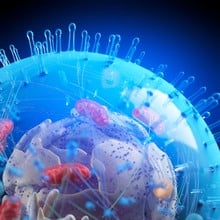So as most of you know, scientists inject germs into horses, since horse blood can easily create a antibody which can then be used to create a type of vaccine.
However, instead of injecting the disease into the horse blood, why can’t horse blood be injected into humans? The immune system of the horse can create an antibody for every disease in our body as soon as we get it?
The diseases that horses get can be negated by the horse blood as well, since it is already used to diseases that horses can get.
I would suggest to look into the basics of blood transfusions. For the same reasons that blood donors must be matched in blood type, the recipient’s immune system would basically freak out at the presence of horse red blood cells.
Hey, I’m not a biologist so someone might have a better/more complete answer. unfortunately injecting horse blood in humans would not be possible. First the immune system is much broader than the blood. The lymphatic system for example plays a major role in creating and training immune cells that target specific diseases. So injecting blood of a horse wouldn’t actually grant you a horse immune system. What we do now is indeed injecting horses with human pathogens to which the whole horse immune system reacts and creates antibodies. We can then isolate these from the blood. But just injecting the blood would this not give you the power of the much more complex immune system and would not even allow for the creation of new antibodies. I would really recommendthe kursgezagt videos about the immune system and diseases, they really do a good job of explaining the complex system in understandable terms.
Additionally injecting horse blood would trigger te human immune system. That’s because it contains many foreign proteins that are not present in the human body. If you would put a lot of horse blood in a human body you might even get a severe enough reaction to kill the patient (like a severe allergic reaction)
tl;dr: horse blood isn’t special, humans are special, so they use the horse blood because it’s less bad to hurt a horse than a human (also possible the disease in question doesn’t hurt horses as much as humans but I’d guess mostly the first one).
Human blood creates antibodies for every disease in our body as soon as we get it too. There are two reasons scientists use horse blood for this and not human blood: 1) injecting the disease into human A so that human A produces antibodies against it that will protect human A defeats the whole purpose - the reason we get sick is that it takes some time for the body to figure out the right antibodies and ramp up their production. So deliberately injecting a disease-causing agent just… causes the disease, and presumably it’s a disease with unacceptable odds of hurting or killing you while the antibodies get made otherwise why would you bother with this, you’d just passively wait to catch it. Like with colds. And 2) injecting the disease into human A so that they produce antibodies that you’ll then inject into human B would effectively protect human B, but at the cost of human A getting the disease which becomes straight-up Mengele evil at scale. Having said that I think there were COVID treatments that were basically this, just without the evil part of deliberately infecting people.
Also, kind of besides the point given the rest of the answer but for educational purposes, injecting horse blood into humans would be harmful because it’s a complex liquid chock-full of living cells and compounds that the human immune system will recognize as foreign contaminants and attack. And if there’s enough of it (and you seem to be imagining a pretty significant transfusion here) this attack will be severe enough to harm or even kill the human in question. It’s the exact same reason you need to be careful with blood types when transfusing from human to human.


